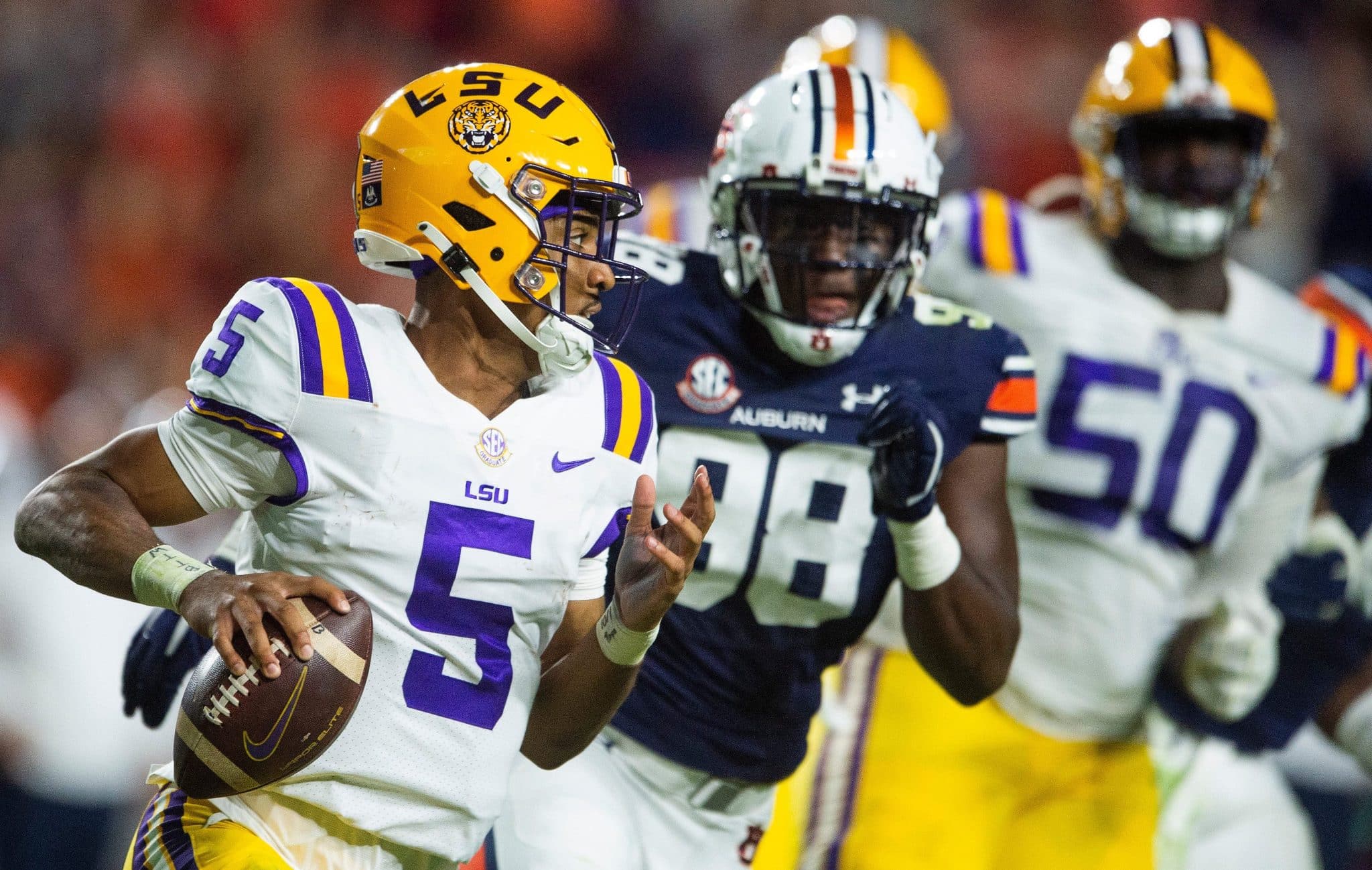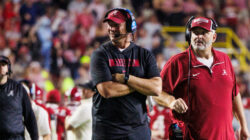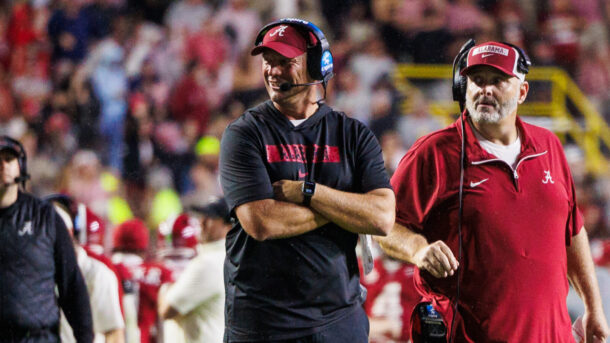
LSU football: Brian Kelly wants Jayden Daniels to be more aggressive as a passer
By Les East
Published:
Jayden Daniels is taking really good care of the football.
And that’s great.
But the absence of interceptions alone doesn’t mean the LSU quarterback is performing as efficiently as head coach Brian Kelly would prefer.
Kelly hates turnovers as much as any coach does. He’s happy that not a single 1 of the 131 passes that Daniels has thrown has been caught by an opposing defender. For comparison’s sake, Garrett Nussmeier, the Tigers’ No. 2 quarterback, has 2 interceptions (1 of which was returned for a touchdown) in 39 throws.
But there is such a thing as being too cautious. Passing up potential completions, perhaps potential big gainers, for the sake of avoiding interceptions has to be weighed through a cost-benefit analysis.
The yardage and points that can be sacrificed in the name of caution can be a bigger negative than whatever damage that might come from interceptions that result from throws that aren’t the safest.
Kelly suggested that the real goal is finding and straddling the fine line between the “edge of aggressiveness” and being “reckless.”
“We’ve gotta get Jayden a little more on that edge and a little more aggressive, and we will,” Kelly said.
In 5 games, Daniels has come closer to maximizing his potential as runner than he has as a passer.
Daniels has by far the most rushes on the team; he has 60, and the 2nd most in 34 (Armoni Goodwin). Daniels has the most rushing yards (321), and 2nd is 199 (Goodwin), even though Daniels has left 3 of the Tigers’ 5 games prematurely.
He left early in the 2nd quarter against Southern in Week 2 because the blowout win already was in hand. He left wins the past 2 weeks because of physical issues. He suffered a minor back strain against New Mexico and was hampered by knee pain caused a bursa sac against Auburn last week.
Kelly said Daniels should be fine for LSU’s game against No. 8 Tennessee on Saturday in Tiger Stadium. The coach is less certain of the health of the LSU passing game.
The Tigers passed for a paltry 85 yards against Auburn but still managed to score the final 20 points after falling behind 17-0. That produced a 4th consecutive victory that vaulted LSU to the No. 25 spot in the AP poll.
“This past weekend was not good enough,” Kelly said in reference to the passing game. “That’s not going to get you a sustainable offense that can win games at the highest level in the SEC.”
Kelly made it clear that the push to get Daniels to be more aggressive in his decision-making doesn’t mean that the shortcomings through the air are exclusively the quarterback’s fault.
Far from it.
“That’s coaching and that’s playing,” Kelly said. “We have to prepare better, our fundamentals have to be better. We have to look at the passing game and ask are we doing too much? Are we doing the things that highlight our players? Our players will have to look at themselves. This is an all-of-us-together situation, and a recognition and an awareness that 85 yards is not gonna get it done.”
The focus on making the passing game more productive isn’t a result just of the statistics. In fact, overall, the Tigers are tied for 7th in the SEC in passing touchdowns (7), 8th in passing yards per game (247.6) and 5th in completion percentage (66.1).
By the way, LSU does not lead the SEC in fewest interceptions, but that’s because of the pair that Nussmeier threw. Daniels’ absence of interceptions is matched by only 1 team (Tennessee), and 3 others (Arkansas, Georgia and Vanderbilt) have just 1 each.
Kelly said he can live with the occasional interceptions that figure to come with more aggressive quarterback play, not just because they’re an unavoidable part of football but because more aggression gives the Tigers a better chance of taking advantage of their very talented and thus far underutilized receiving corps.
“With the skill players we have, we’ve gotta get that ball down the field and into some tight windows,” Kelly said. “Those guys can make plays, and we’ve gotta get them the ball.”
Against Auburn, LSU completed just 10 of 26 passes. Wide receivers were targeted 13 times, and they caught 4 balls for 32 yards. They had 4 drops.
Kelly said the unsatisfactory productivity from the wide receivers is another multifaceted issue. Of course the drops are the most obvious, but he made it clear that route running is another.
For what it’s worth, Tennessee is last in the SEC in passing yards allowed (309 per game) and 10th in opponent completion percentage (59.6).
Certainly, those numbers are skewed by the fact that the Volunteers generally have turned their games into high-scoring affairs, and often have had large leads that have forced opponents to pass more frequently than they otherwise would have.
LSU might wind up having to throw more than it would prefer against the Volunteers, but the goal is to be more aggressive when it does throw.
Les East is a New Orleans-based football writer who covers LSU for SaturdayDownSouth.com. Follow him on Twitter @Les_East.







